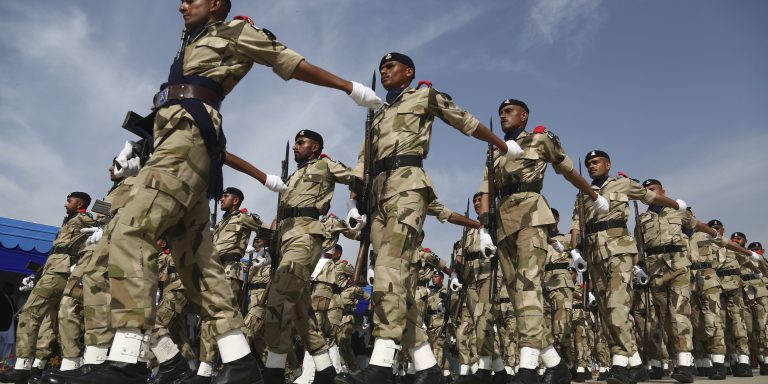INTELBRIEF
March 6, 2018
TSC IntelBrief: New Pressure on Pakistan

- The decision by the Financial Action Task Force (FATF) to place Pakistan on its ‘grey list’ is a sign of growing pressure on that country to confront terrorist groups operating within its borders.
- The pressure is coming not just from the United States but also from Saudi Arabia and China, an unwelcome shift for Islamabad.
- As the U.S. increases its troop presence in Afghanistan, it will look for help in countering terrorist safe havens in neighboring Pakistan.
- Pakistan’s response to increased international pressure was seen as window-dressing—an attempt to avoid external sanctions while still limiting internal unrest.
Relations between the United States and Pakistan are bad and trending worse. There have always been tensions between Washington and Islamabad over counterterrorism intentions and capabilities, with the U.S., among others, criticizing Pakistan for its well-documented support for groups like Lashkar-e-Taiba (LeT) and the Taliban, and the safe haven that groups like al-Qaeda and Tehrik-i-Taliban (TTP) find in the country’s tribal regions. For its part, Pakistan says it is doing as much as it can against groups like al-Qaeda and TTP, pointing out that since 2001 its security and military forces have lost thousands in the fight against terrorism.
Periodic pressure from Washington on Islamabad to crack down on terrorist sanctuary and support is also nothing new. However, a combination of factors might make this latest round of pressure on Pakistan more significant than in years past. The international body aimed at countering the financing of terrorist groups, the Financial Action Task Force (FATF), has decided once again to put Pakistan on its ‘grey list’ of countries that need to improve their efforts against terror financing. The listing by itself has no enforcement capability, but investors tend to shy away from countries on the grey list.
The most significant factor in the FATF putting Pakistan back on the grey list, which it was on from 2012-2015—though the global dynamics are quite different now—are the postures of Saudi Arabia and China; the former voted for the measure and the latter abstained, allowing the motion to carry. While Pakistan expects pressure from the U.S., the lack of support from China and Saudi Arabia, both of whom are vital to the economy and finances of Pakistan, is a sign of effective lobbying by the U.S. and, at least publicly, those two countries taking a tougher stand on Pakistan’s dance with terrorist groups.
The last-minute actions by Islamabad to amend a key terrorism financing law and seize the assets of a high-profile charity, Jamaat-ud-Dawa, led by Hafiz Mohammad Saeed, the former head of LeT, were not enough to convince Beijing and Riyadh that Pakistan was truly serious about systemic and lasting change. Instead, the moves were seen as window-dressing in an attempt to avoid external sanctions while limiting internal unrest by moving slowly and carefully against domestic terrorist groups—groups that have enjoyed substantial domestic backing and even support by the Pakistani government.
Pakistan reacted to the FATF decision with the expected denouncement of the U.S., claiming that Washington intended to hurt Pakistan’s economy. It is unlikely that the FATF decision will in and of itself hurt the Pakistani economy but, importantly, the FATF is not by itself: it is the latest in a trend of growing impatience with Pakistan’s use of groups such as LeT in its fight against India and the Taliban in its fight with Afghanistan—a fight which is also connected to Pakistan’s decades-old conflict with India. The U.S. has already suspended all military aid to Pakistan—with no sign that aid will be restored in the near term. China has made it clear that it considers the issue of Uighurs as perhaps its most pressing terrorist threat and has signaled to Islamabad that Uighurs training in quasi-supported camps in Pakistan is something Beijing will tolerate no longer. Pakistan had hoped to weather growing pressure from the U.S. by leaning more on the support of China and Saudi Arabia; Pakistan is likely realizing that support will come with more substantial changes by Islamabad to countering terrorism.
.
For tailored research and analysis, please contact: info@thesoufancenter.org
[video width="960" height="540" mp4="https://thesoufancenter.org/wp-content/uploads/2018/03/Final-Edit-1-144.mp4" poster="https://thesoufancenter.org/wp-content/uploads/2018/03/AP_18053304309704-1.jpg"][/video]